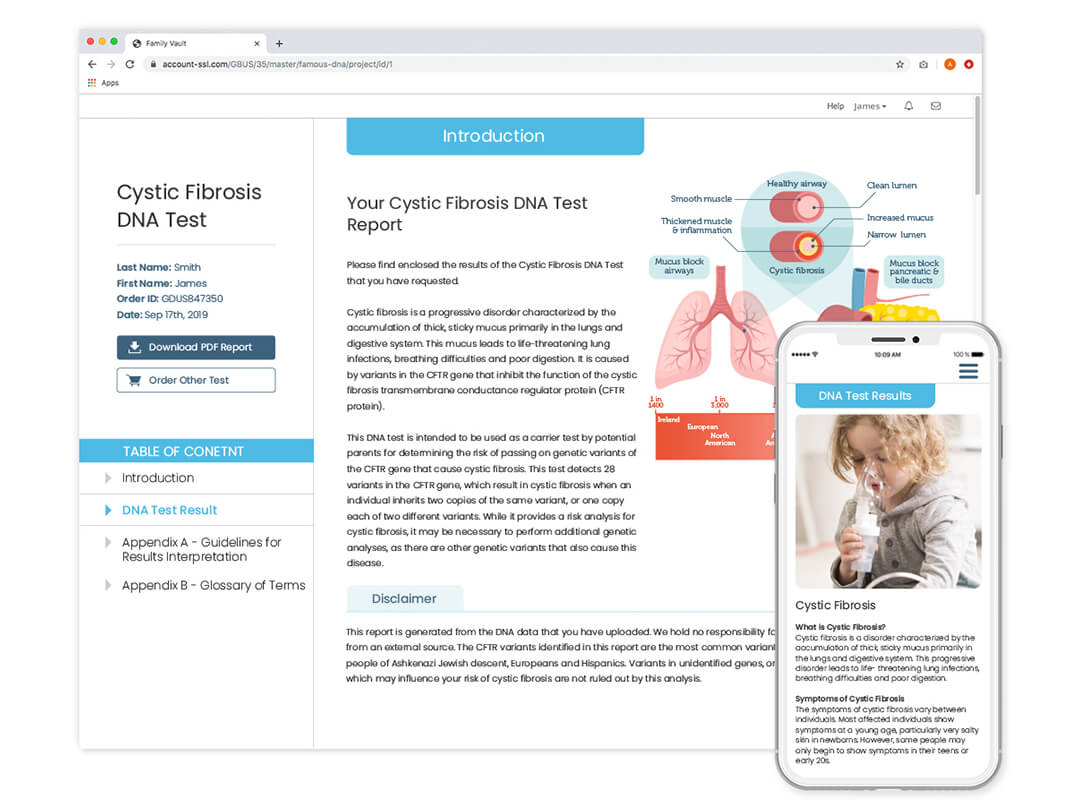Cystic Fibrosis DNA Test
Are you a genetic carrier for cystic fibrosis? Find out with this DNA Test.
- Detects 28 variants in the CFTR gene which cause cystic fibrosis
- Characterized by accumulation of thick, sticky mucus in the lungs and digestive system
- Carrier screening test intended for couples who are planning to become pregnant
- 100% private and confidential online results
Already have DNA markers? Sign in and upload your data to view results.
Need to take the DNA Test? Order our easy-to-use swab kit.





